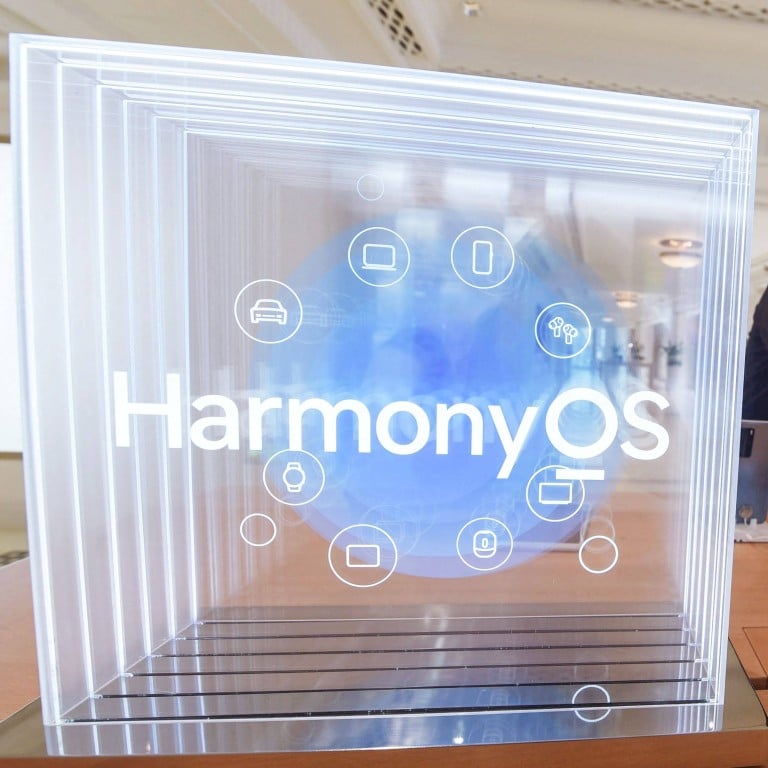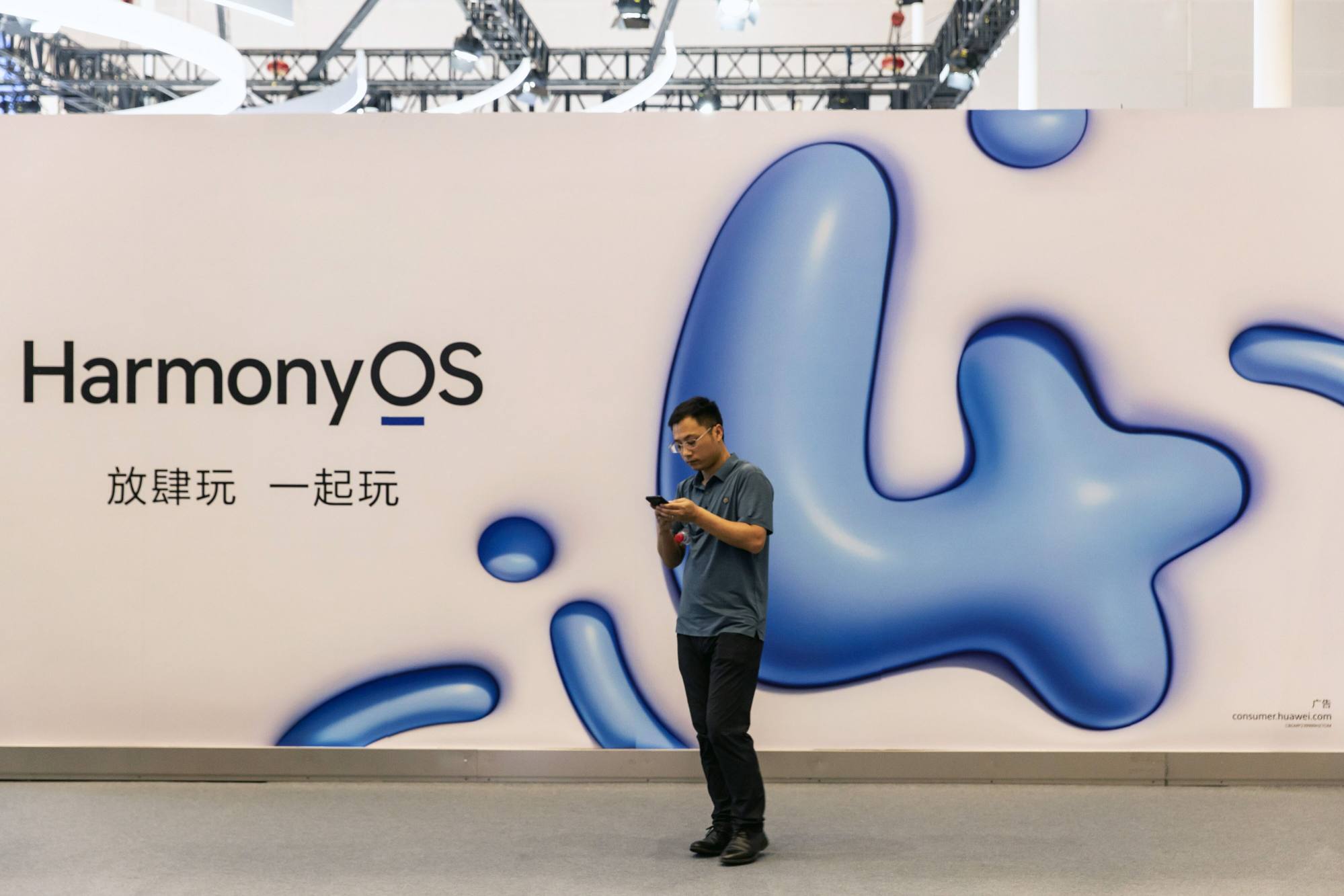Advertisement
Advertisement

Chinese tech hub Shenzhen to expedite adoption of apps built on Huawei’s HarmonyOS across various industries in 2024
- Shenzhen’s municipal government plans to boost the number of its native apps built on HarmonyOS and push for their adoption across major sectors
- Companies in the city are expected to account for 10 per cent of the total number of HarmonyOS-built apps on the mainland by the end of this year
Chinese technology hub Shenzhen, home of telecommunications equipment giant Huawei Technologies, plans to expedite the adoption of the company’s self-developed mobile operating system HarmonyOS, heating up the platform’s rivalry with Google’s Android and Apple’s iOS in the world’s largest smartphone market.
The Shenzhen municipal government intends to boost the number of its native apps built on HarmonyOS and push for their adoption across several major sectors, according to a 2024 action plan published on Sunday by the city’s Industry and Information Technology Bureau.
Under that initiative, HarmonyOS-based apps would be adopted in sectors that include government services, education, healthcare, banking and finance, transport and welfare.
Companies in Shenzhen, widely regarded as China’s Silicon Valley, are expected to account for 10 per cent of the total number of HarmonyOS-built apps on the mainland by the end of this year, according to the plan.

The municipal government will also support universities and training institutions across the city to establish HarmonyOS developer courses, and set up at least two new industrial parks for companies to develop products based on Huawei’s mobile operating platform.
Shenzhen’s move further bolsters Huawei’s strategy to widen the adoption of HarmonyOS as an alternative ecosystem on the mainland, as set out by company founder and chief executive Ren Zhengfei last year to counter the impact of US sanctions.
HarmonyOS was unveiled by Huawei in August 2019, three months after the United States government put the company on a trade blacklist that restricted it from buying chips and software that use US technologies without Washington’s approval.
The mobile operating system is used on smartphones, tablets, smart televisions, personal computers, smartwatches and various home appliances.
Huawei’s HarmonyOS tipped to beat Apple’s iOS in China in 2024: TechInsights
Huawei’s HarmonyOS tipped to beat Apple’s iOS in China in 2024: TechInsights
Shenzhen’s action plan on HarmonyOS adoption comes as Huawei climbed back to the No 1 spot in China’s smartphone market earlier this year, according to a report by research firm Counterpoint.
That resurgence was jump-started by Huawei’s surprise release last August of its Mate 60 Pro 5G smartphone – powered by its advanced Kirin 9000S processor, which was locally developed in spite of US tech sanctions, and running HarmonyOS.
While Google’s Android and Apple’s iOS will continue to dominate the global smartphone operating system arena, HarmonyOS is predicted to surpass Apple’s iOS as the second-biggest mobile operating system in mainland China this year amid the growing domestic demand for Huawei’s latest 5G smartphones.
A developer preview version of HarmonyOS Next, the latest iteration of Huawei’s mobile operating system, was made available to coders in January. It will be launched for commercial use in the fourth quarter of this year, according to Huawei.
Huawei founder Ren is focused on alternative ecosystems, such as HarmonyOS
Huawei founder Ren is focused on alternative ecosystems, such as HarmonyOS
A number of major Chinese technology companies have already moved to develop native apps based on HarmonyOS.
Internet search firm Baidu’s mapping service unit said in a statement on Monday that a software development kit for HarmonyOS Next will be made available on March 25, in the latest sign of HarmonyOS’ growing popularity on the mainland.
In January, Chinese online shopping platform operator JD.com said it will build an app based on HarmonyOS Next.
Chinese financial technology giant Ant Group said in December that it is building a new HarmonyOS version of mobile payment app Alipay. Ant Group is an affiliate of Alibaba Group Holding, owner of the South China Morning Post.
In November, e-commerce giant Alibaba said it was developing a new version of its workplace collaboration app DingTalk that is compatible with HarmonyOS.

2
